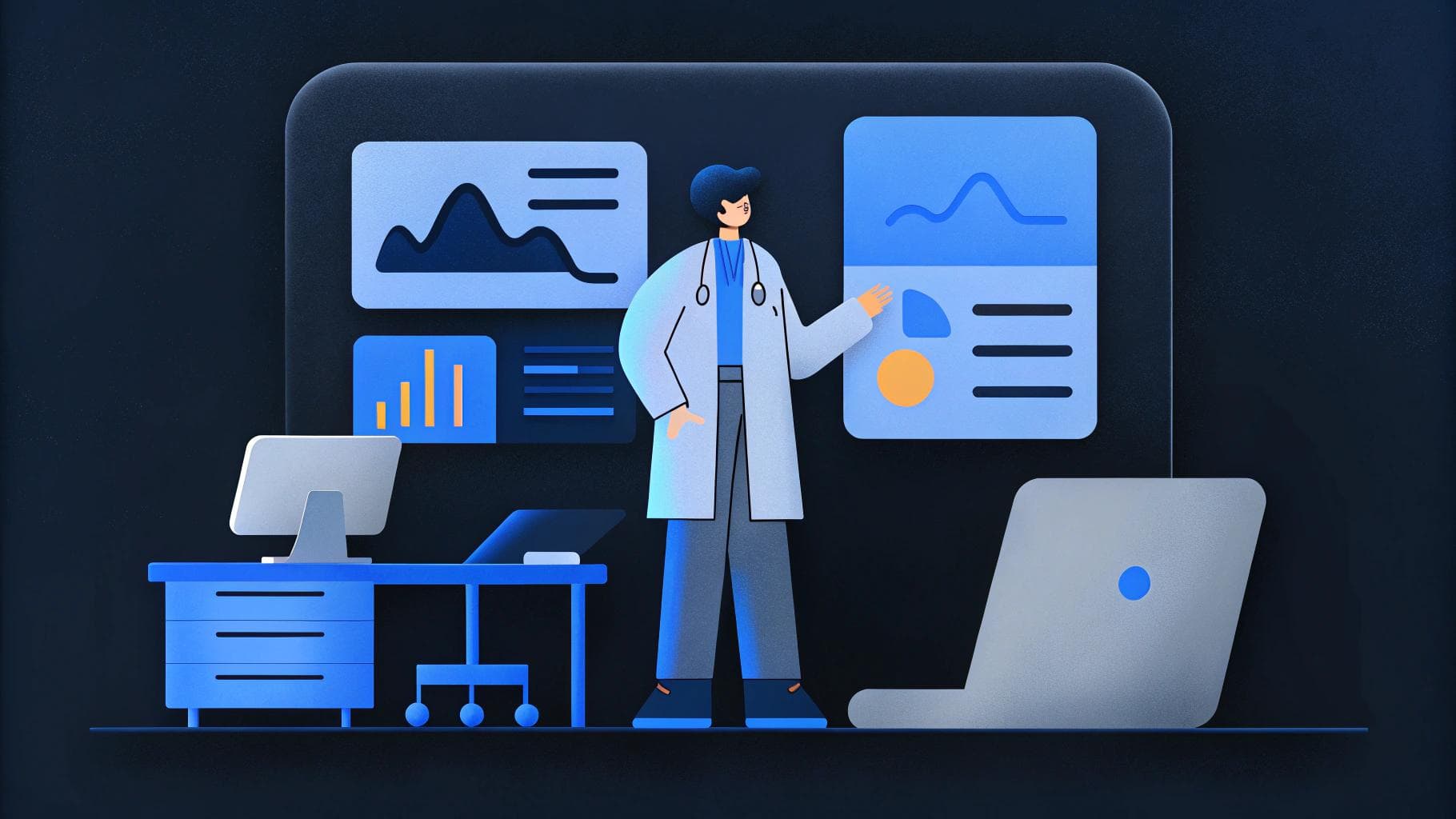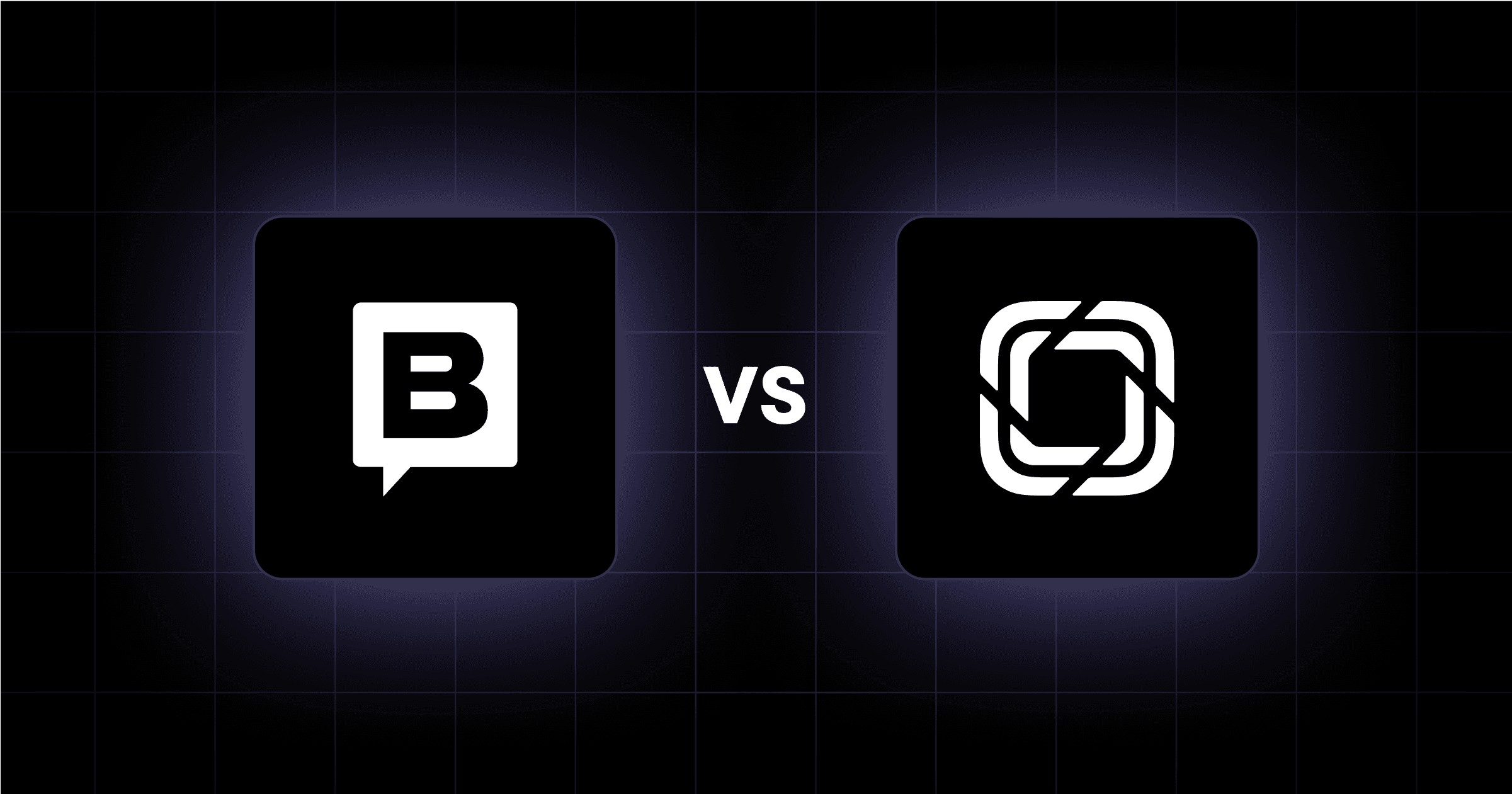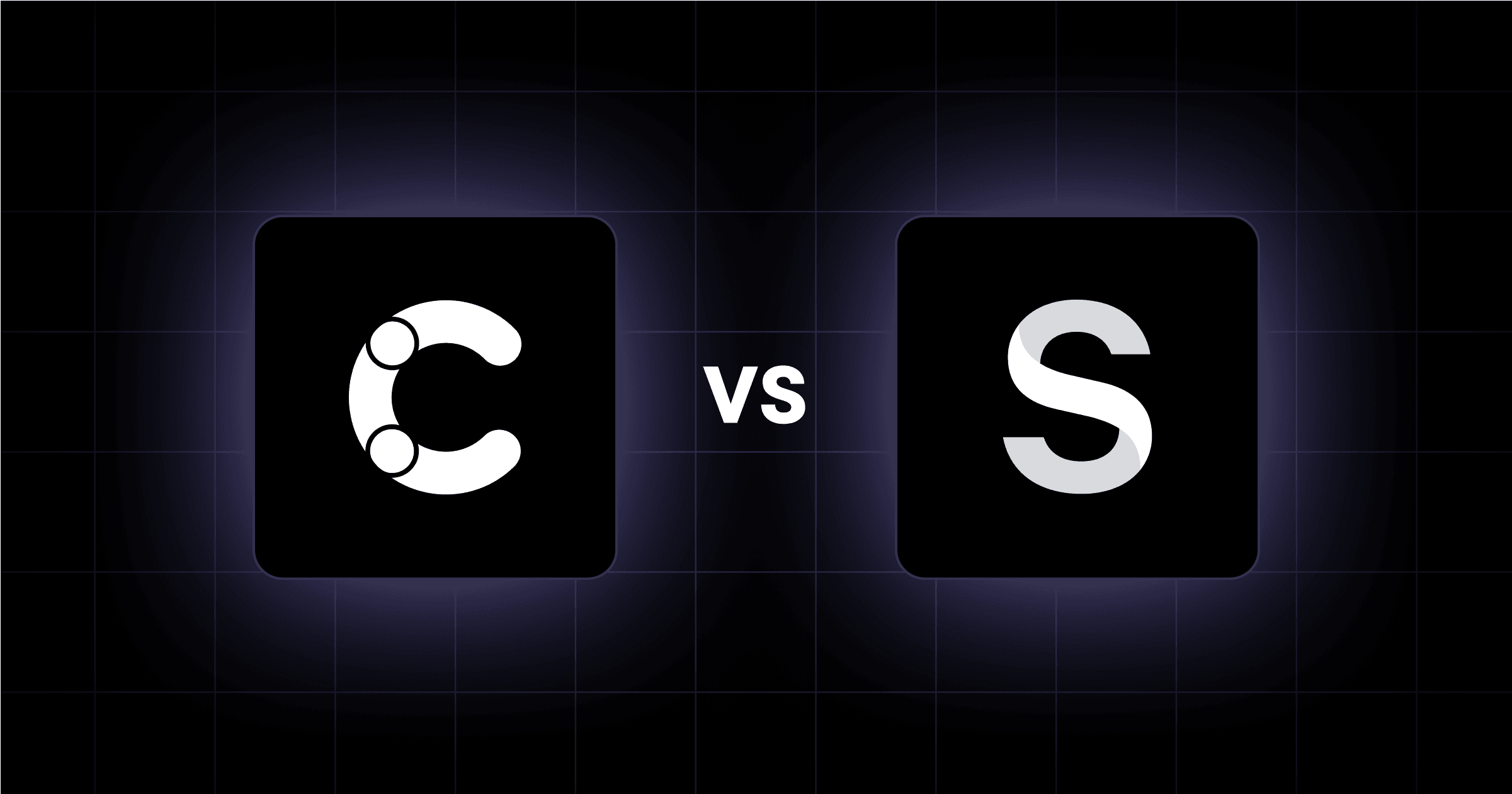Friday, May 9, 2025
How to Apply AI in Healthcare Marketing

Healthcare marketing is shifting fast. Patients expect more personalized experiences. Buyers expect faster answers. And marketing teams are expected to deliver both across channels, regions, and internal stakeholders.
AI in healthcare marketing is quickly becoming a key part of that equation. It helps healthcare and MedTech companies personalize messaging, automate workflows, and gain deeper insights into what’s working.
At Webstacks, we work with MedTech marketing teams to build websites that support this shift and meet rising expectations.
In this article, we’ll break down how B2B healthcare and MedTech teams can use AI in the real world.

1. Use AI to Personalize User Journeys (Without Compromising Privacy)
AI helps healthcare marketers move beyond one-size-fits-all messaging and deliver more relevant experiences, without using protected health information. When implemented correctly, AI can surface insights based on general behavior trends, engagement patterns, and consented user data to guide more effective outreach.
Understand Behavioral Signals in a Privacy-Safe Way
AI can analyze de-identified website behavior, CRM interactions, and survey responses to detect patterns across audience segments. This helps teams understand what content is resonating, which journeys are stalling, and where users are most likely to engage. Without collecting or storing sensitive personal data.
For example, if a large number of users drop off on orthopedic service pages, AI can flag that pattern and suggest optimizing the content or triggering anonymous retargeting campaigns, provided proper cookie consent is in place.
Segment by Engagement
Traditional segmentation based on age or condition is limiting and often too broad. AI helps marketers go deeper using consented behavioral and psychographic inputs, such as preferred communication style or content depth.
Let’s say a health system is promoting a new preventative care service. Instead of sending the same message to all users over 50, an AI platform can group audiences by content engagement level and communication preferences. One segment receives a detailed explainer via email. Another sees a short educational video in a social feed.
Learn more: How to Build a HIPAA Compliant Website
2. Apply AI for Smarter, Faster Content Strategy and SEO
Creating content in healthcare marketing takes time. You’re educating technical audiences, meeting regulatory expectations, and supporting long buyer journeys across multiple decision-makers. AI helps teams work faster and more strategically.
Plan and Produce Based on Real Search Behavior
AI tools can analyze real-time search trends, identify high-intent topics, and surface content gaps across your site.
Instead of guessing what your audience wants or relying solely on manual keyword research, marketers can build content strategies around what people are actually searching for.
This is especially useful in MedTech, where you may be speaking to providers, procurement teams, and clinical evaluators at once. AI platforms can tailor topic recommendations based on how each group searches, and help you produce content that resonates with different stakeholders.
Structure Content to Match Search Intent
AI-powered SEO tools take the guesswork out of content optimization. They can scan top-performing search results to show what structure, reading level, and supporting topics your content should include to stay competitive.
If you’re writing about “AI in diagnostic imaging,” for example, an AI SEO assistant might recommend including subtopics like FDA approval processes, diagnostic accuracy, and workflow integration.
Publish More Consistently
Healthcare marketers using AI for planning and optimization are publishing faster and seeing stronger results.
Content that used to take weeks to draft and review can now be built in days.
Just as important: this process doesn’t require handling any patient data or triggering HIPAA concerns. All insights are based on public search behavior and anonymized engagement trends, not protected health information.

3. Use AI to Automate Campaigns
Healthcare marketing teams have a lot to manage. AI-powered automation gives you a way to scale campaigns without trading off oversight or personalization.
Automate the Manual Work
Modern AI tools can handle routine parts of campaign management, such as audience segmentation, email scheduling, social posting, and budget pacing on paid channels.
Instead of manually building lists or updating ads, you can set up workflows that trigger based on real-time engagement signals, such as page visits, form fills, or CRM activity.
Your team still owns the creative direction and messaging, but the delivery and optimization happen faster and more efficiently.
Smarter Timing and Channel Selection
AI also helps with sequencing.
By analyzing engagement patterns and historical behavior, automation tools can schedule outreach based on what’s worked in the past.
For example, if a hospital admin usually interacts with product updates at the start of a new quarter, the system can time future messages accordingly.
This kind of predictive automation helps ensure your messaging lands at the right moment, through the right channel. And because the data is typically behavioral or operational (not clinical), it avoids triggering HIPAA concerns when set up through compliant systems.
4. Use AI to Turn Data Into Better Marketing Decisions
Healthcare marketers have no shortage of data. The challenge is making sense of it quickly and using it to guide the next move. AI helps teams cut through the noise by analyzing performance data in real time and recommending clear next steps.
Bring Your Data Together and Make It Useful
Most marketing teams use multiple platforms and it’s easy for insights to get lost in disconnected dashboards. AI tools can pull data from these sources, spot patterns, and flag what’s actually worth paying attention to.
That might be a campaign that’s falling short with a key audience, a channel that’s outperforming expectations, or a drop-off point in your funnel that needs fixing.
Improve Campaigns in Real Time
With AI, optimization doesn’t have to wait for the next planning cycle. If email open rates are dropping or a paid campaign is burning budget without results, AI can flag it early and suggest adjustments like changing subject lines, shifting budget, or refining audience targeting.
Use Forecasting to Plan Smarter
AI can also help you look ahead. Predictive tools can spot trends in search behavior, geographic demand, or referral patterns before they fully show up in your analytics.
For example, a MedTech team planning a new product launch can use AI to evaluate demand signals across regions and estimate likely conversion windows. That makes campaign planning faster, more accurate, and easier to justify internally.
Most importantly, these insights come from operational and marketing data (not PHI) keeping you safely on the right side of HIPAA when using compliant platforms and anonymized data sets.
5. Use AI to Accelerate Website Design and Development
Healthcare websites are often large and complex. They support multiple user types, require strict compliance, and need to scale as services evolve. AI can streamline how teams design, build, and manage these sites.
Speed Up the Design Process
AI design tools can suggest layouts and components that follow your brand guidelines. Instead of starting from a blank canvas, teams get structured ideas they can quickly review and refine.
Simplify Content Modeling and Page Building
AI can help organize content more efficiently. It can identify which pages are outdated, suggest how to group related topics, and surface gaps in your site architecture.
In component-based CMS platforms, AI can also assist with assembling pages by recommending content types or layouts based on the page’s goal or audience.
Support Faster Development
AI-powered dev tools help engineers move quickly by automating repetitive work and flagging potential issues during implementation. For marketing teams, this means fewer delays when building new pages or rolling out updates. It also helps enforce design and accessibility standards at the code level, reducing the risk of rework.
If you’re considering a web design project for your site and need help, Webstacks’ expert team can help you get started.
Bring AI Into Your MedTech Marketing Stack
AI is changing how healthcare marketing teams work. It helps you move faster, improve targeting, and make smarter decisions. For MedTech companies, it’s a clear advantage in a space where precision and trust matter.
But AI only delivers results when it’s built into the right infrastructure. You need to connect it to systems that support your workflows and protect your data.
At Webstacks, we work with MedTech and healthcare teams to build flexible platforms that are ready for what’s next, AI included. Whether you’re updating your CMS, simplifying content ops, or preparing your site to support smarter tools, we’ll help you do it fast and do it right.



